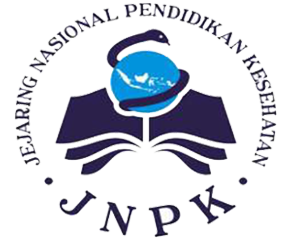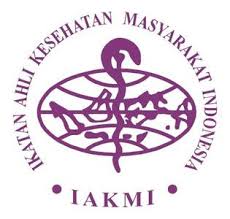Implementasi Program Pos Pembinaan Terpadu Penyakit Tidak Menular
Abstract
Abstrak
Cakupan kegiatan Posbindu Widuri dan Posbindu Sehat Lestari masing-masing sebesar 0,6% dan 0,2% termasuk kategori merah karena dibawah target Kemenkes yaitu 10% dan tidak semua Posbindu berjalan aktif setiap bulan. Tujuan penelitian ini untuk mengetahui implementasi program Posbindu PTM di wilayah kerja Puskesmas Bulu Lor. Jenis penelitian studi kasus metode kualitatif rancangan deskriptif. Narasumber ditentukan melalui teknik purposive sampling sebanyak 7 orang, yakni 3 narasumber utama dan 4 triangulasi. Teknik pengambilan data melalui wawancara semi terstruktur, observasi partisipatif pasif, dokumentasi. Instrumen yang digunakan lembar observasi dan pedoman wawancara. Analisis data yang digunakan adalah pengumpulan data, reduksi data, penyajian data, dan penarikan kesimpulan. Hasil penelitian menunjukkan komunikasi yang diberikan belum menyeluruh kepada sasaran, tidak semua kader mendapat pelatihan, fasilitas masih belum lengkap, dana masih kurang, komitmen sebagian pelaksana masih kurang, SOP khusus program Posbindu PTM belum dibuat oleh Puskesmas, simpulan dalam penelitian ini adalah implementasi program Posbindu PTM di wilayah kerja Puskesmas Bulu Lor belum optimal.
Abstract
The coverage of Posbindu Widuri and Posbindu Sehat Lestari activity is 0.6% and 0.2% for each which includes in the red category because it is below the Ministry of Health's target of 10%, and not all Posbindu is active in every month. The purpose of this study was to find out the implementation of the Posbindu PTM program in the working area of Bulu Lor Health Center. This research type was a case study of a descriptive qualitative method. The interviewees were determined through 7 purposive sampling techniques, these were 3 main interviewees and 4 triangulations. Data collection techniques were through semi-structured interviews, passive participatory observation, and documentation. The instrument used was the observation sheet and interview guidelines. The data analysis used data collection, data reduction, data presentation, and drawing conclusions. The results showed that the communication provided was not comprehensive to the target, not all cadres got a training, the facilities were still incomplete, the fund was still lackingthe commitment of some implementers was still lacking, and the specifically SOP for the Posbindu PTM program has not been made by the Health Center, Conclusion of this study is the implementation of the Posbindu PTM program in the working area of ​​ Bulu Lor Health Center was not optimal.




